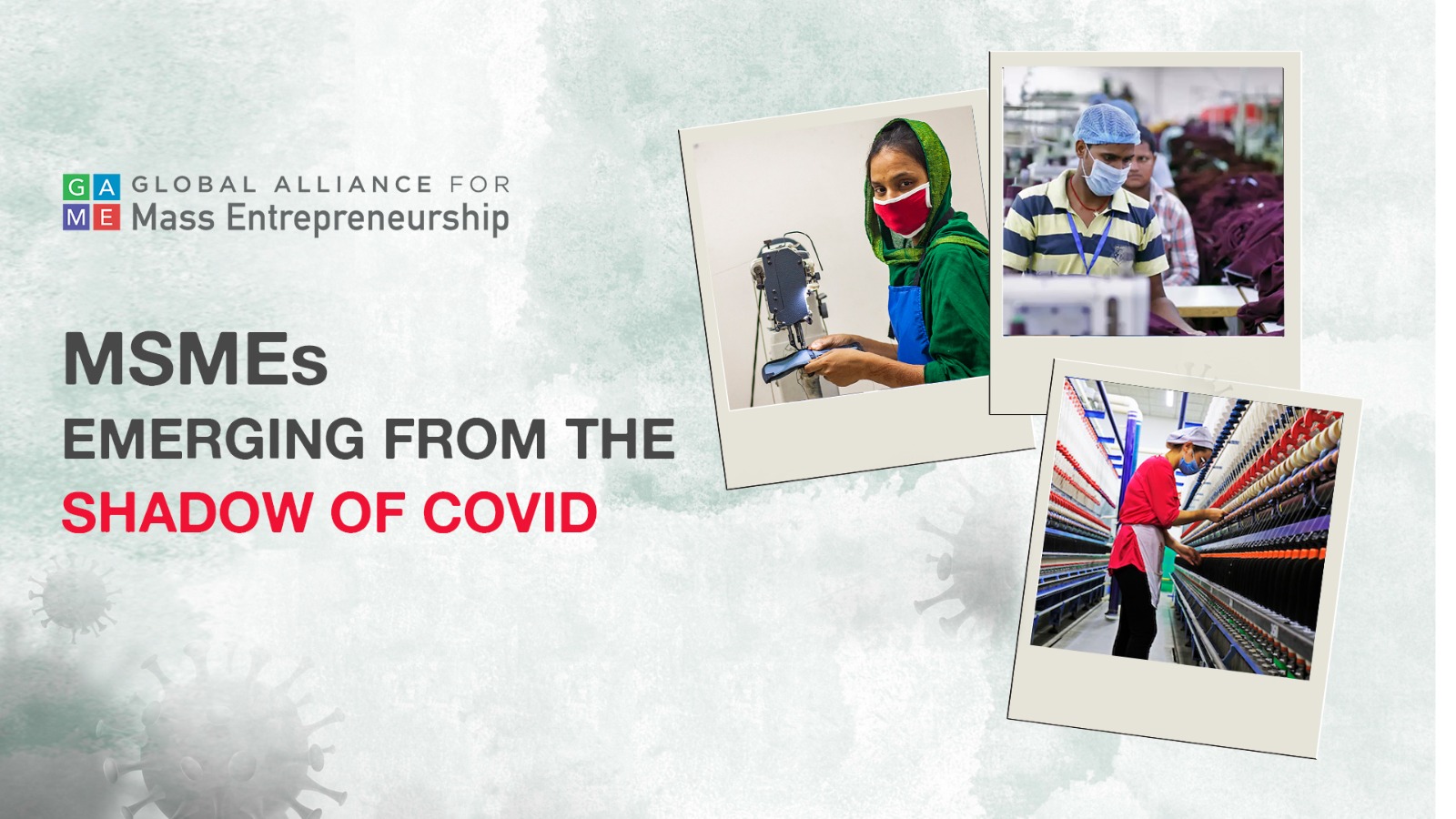A long-drawn and unexpected crisis like COVID-19 can affect businesses adversely, and micro businesses felt the impact far more strongly and for longer. A research study conducted by LEAD at Krea University, funded by the Global Alliance for Mass Entrepreneurship (GAME), to understand the impact of the COVID-19 pandemic and lockdowns on microbusinesses provides high-quality and timely data to help enable industry and policy interventions.
And the key takeaways from our study are that since there is low awareness of Government support programs and emergency provisions under the Atmanirbhar Bharat package among enterprises, there is a need for more targeted outreach initiatives.
A more proactive approach by participating lending institutions at the branch and community level can ensure that critical information trickles down in a timely manner. Coordinating responses at the sector and cluster level also plays an important role in helping enterprises tap into shared resources to offset costs and pool capital where feasible e.g. shared warehouse space, and community/cluster-level loans. Apart from timely cash transfers and loan moratoriums, demand stimulation programs can include public procurement mandates from local MSME firms.
Since micro-enterprises are particularly vulnerable to economic shocks and disruptions in supply chains, and their workers are primarily responsible for their own health and well-being, psycho-social interventions such as a crisis hotline can help in identifying early signs of distress across vulnerable segments and regional hotspots and implement timely measures accordingly.
Our report highlights certain key issues like how to understand how microbusinesses handled issues like financial crunch and absence of monetary support from formal and informal financial institutions (Chapter 2 of the report); how microbusinesses handled employee retention and helping those who are as good as a family during tough times (Chapter 3); and how stress contributed to the welfare and business continuity of microbusinesses (Chapter 4). Our report is a comprehensive data-supported look at the ground realities amongst microbusinesses.
While emergency measures are useful, long-term measures must focus on building the resilience of micro-enterprises through contingency planning, improving disaster preparedness, and prudent cash flow management, MSMEs Credit practices.

